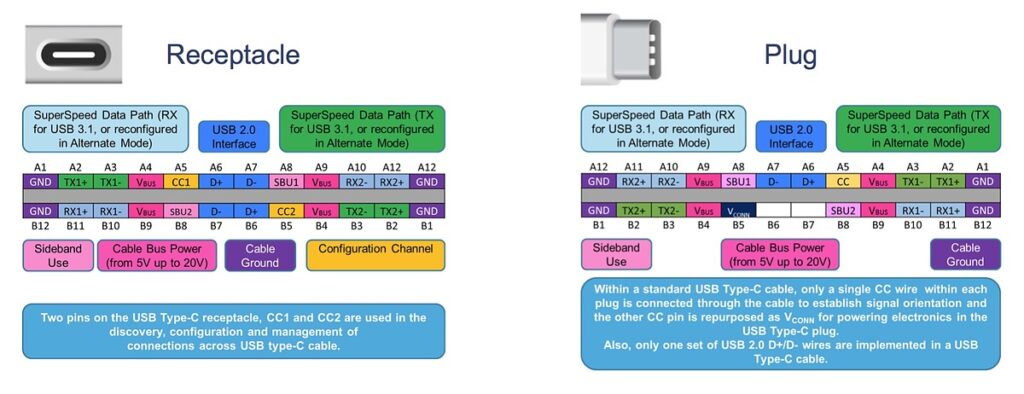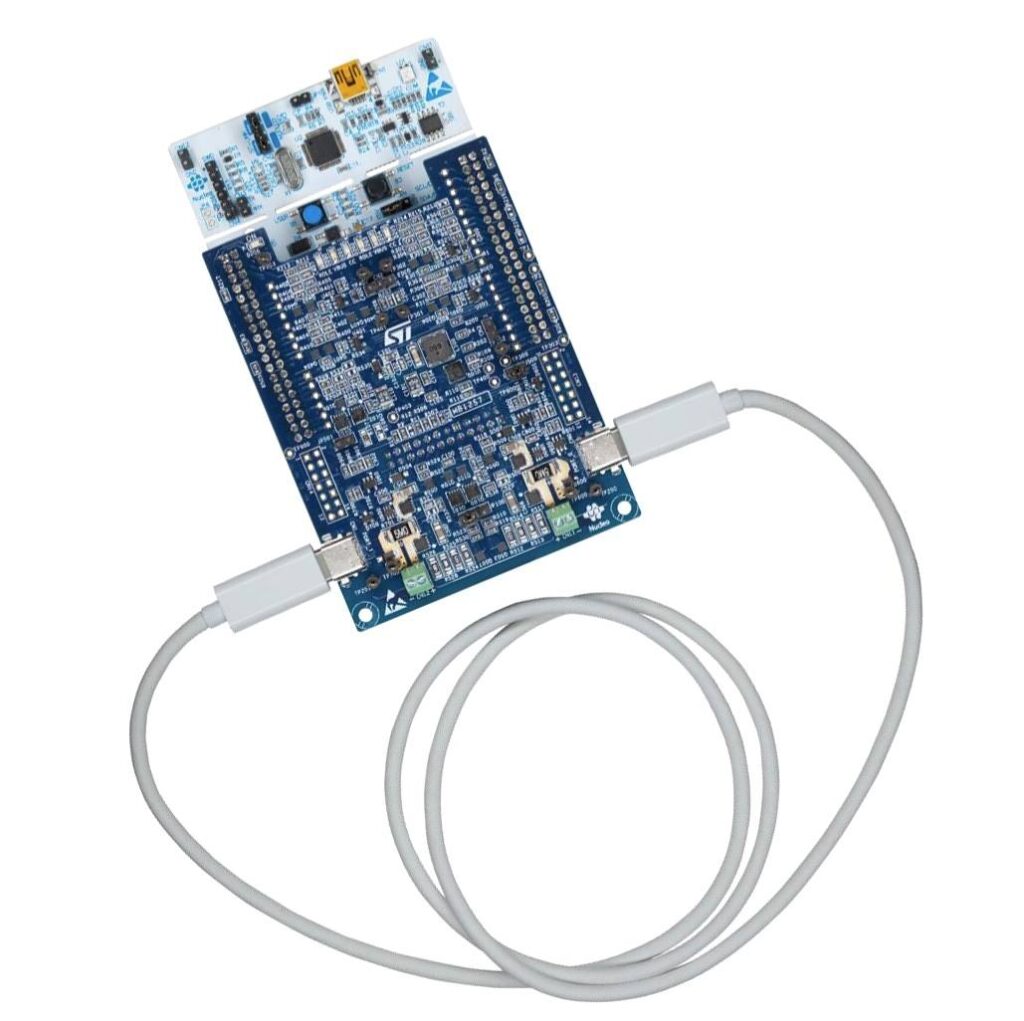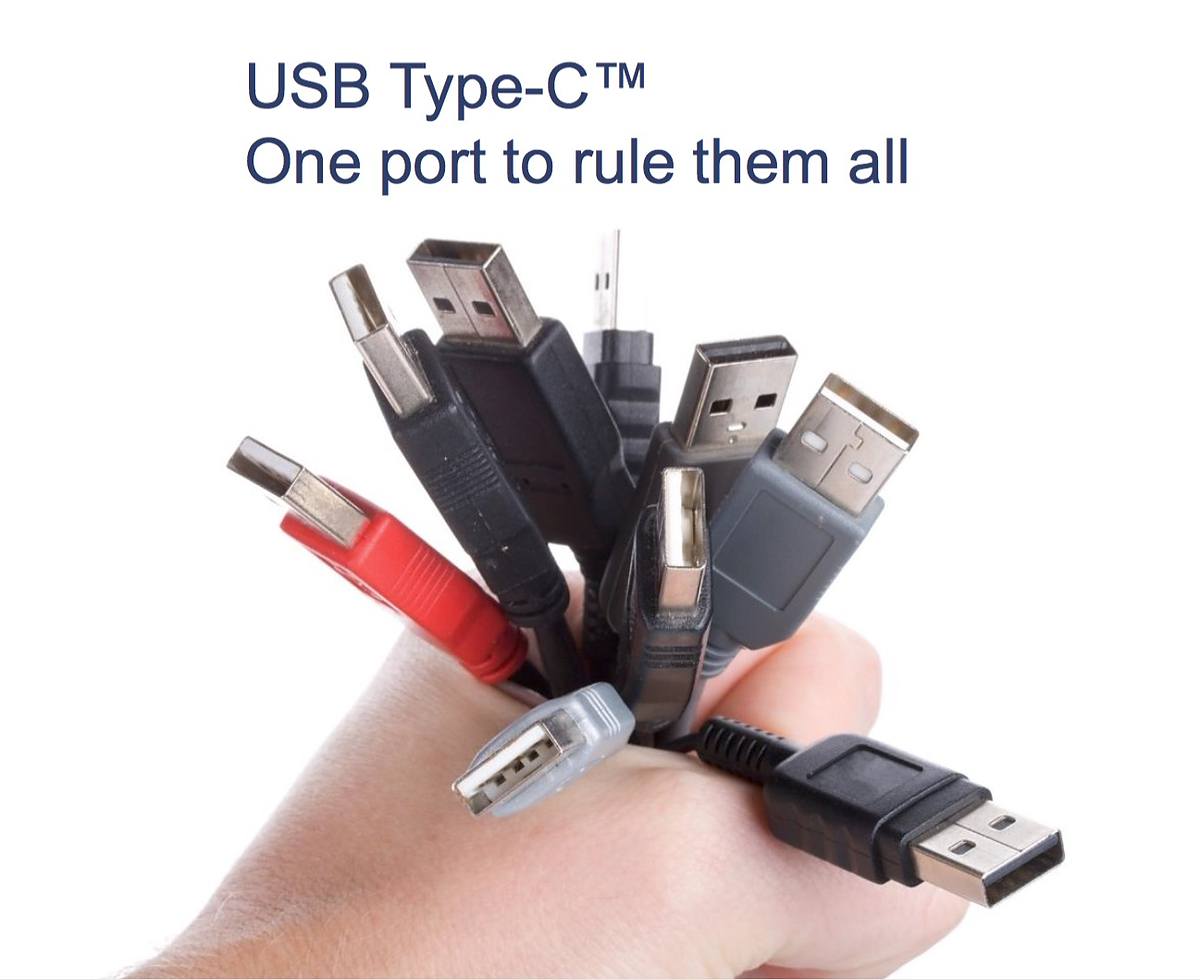The USB (Universal Serial Bus) has profoundly impacted consumer electronics. Originally designed in 1994 to simplify the use of peripherals on computers, its reach has extended beyond its original purpose to impact smartphones, audio and video appliances, smart objects, and even modern car interiors. The latest evolution is the USB Type-C standard, which is already growing in popularity thanks to its reversible plug and options to carry data as well as digital audio and video thanks to its alternate mode options.
USB Type-C has inaugurated the arrival of USB Power Delivery 2.0, a new specification that offers tremendous advantages, that include an increased power level of up to 100 W, and bidirectional power. This means that current no longer has to flow from the host to the peripheral only but can also go the other way. Combined with the much higher power level, laptops can now charge through their USB Type-C port. Power management is also more flexible, with devices only asking for the power they need at a precise moment, meaning a USB-C devices can request more or less energy depending on the load and usage.
However, implementing a USB Type-C port isn’t any longer as simple as soldering a port and hoping for the best. This is where ST’s one-two punch solution ensures that providing USB Type-C connectivity remains painless.
One : Hardware Solution, P-NUCLEO-USB001
The P-NUCLEO-USB001 is a development board intended to help engineers to integrate USB Type-C 1.2 and USB Power Delivery 2.0 technologies in their designs. It includes a NUCLEO-F072RB control board and a MB1257 expansion board containing the USB Type-C connectors. These ports are. consequently, controlled by an STM32F072 MCU, which provides an ARM® Cortex-M0® core architecture, 128 KB of Flash memory, 16 KB of SRAM, and a USB 2.0 interface.
Because USB Type-C ports use a different host, engineers must adapt their designs and route signals to make their system compatible with the new connectors and requirements. The P-NUCLEO-USB001 development board greatly simplifies that process by offering a low-cost solution that already complies with the latest USB Type-C specifications to help engineers learn and use the standard quickly.
The STM32F072 MCU has an embedded 12-bit 16 channel ADC (Analog to Digital Converter) used for device detection and power measurement while a Serial Peripheral Interface (SPI) bus can directly interface with the USB Type-C host. Furthermore, because ST’s other STM32 MCUs are pin-to-pin compatible with the STM32F072, it is possible to later use more powerful control boards and easily adapt the work that has already been done with the P-NUCLEO-USB001.

Two : Software Solution, X-CUBE-USB-PD
To take advantage of all the board’s features, ST provides the X-CUBE-USB-PD package that includes a library and application examples that implement USB Type-C 1.2 and its related technologies. It makes interfacing the PHY with the STM32F072 MCU a breeze, facilitating the authentication procedures as well as the power management.
X-CUBE-USB-PD not only helps designing devices that take advantage of the new Power Delivery standard, but it offers solutions to implement cable detection and orientation so the system can choose the correct communication line, or establish power relations between two ports. Its library means one can take advantage of the STM32F072’s ADC without having to keep registers and bitfields in mind. Everything becomes more intuitive, and the tools included to test the platform at runtime, as well as the other resources targeted at optimizing development, mean that implementing USB Type-C using this one-two punch hardware-software solution can quickly blow the competition out of the water.
The P-NUCLEO-USB001 is available for $49,90 MSRP. For more information, please visit www.st.com and for detailed information on USB type-C and USB PD 2.0 specifications www.usb.org

